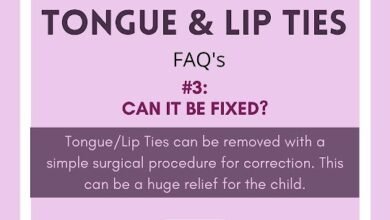Understanding Obsessive-Compulsive Disorder and Holistic Approaches

Obsessive-Compulsive Disorder (OCD) is a mental health condition characterized by intrusive thoughts (obsessions) and repetitive behaviors (compulsions) that significantly impact daily life. It can affect individuals of all ages, causing anxiety, stress, and disruptions in personal and professional life. Understanding OCD and seeking proper treatment is crucial for managing symptoms effectively.
Level Up Wellness Group, a Canadian wellness center, offers multidisciplinary therapy and holistic health services designed to support individuals with OCD. By integrating evidence-based therapies and holistic approaches, clients can achieve improved mental health outcomes. For anyone seeking guidance and treatment for OCD, Level Up Wellness Group provides a comprehensive and supportive environment.
This article explores the causes, symptoms, and treatment options for OCD, highlighting holistic strategies and professional support to improve quality of life.
What is Obsessive-Compulsive Disorder?
OCD is characterized by two primary components:
- Obsessions – Persistent, unwanted thoughts, images, or urges that cause anxiety. Common obsessions include fears of contamination, harm, or moral concerns.
- Compulsions – Repetitive behaviors or mental rituals performed to reduce anxiety caused by obsessions. Examples include excessive handwashing, checking locks repeatedly, or counting rituals.
These obsessions and compulsions can consume significant time, affecting work, relationships, and daily functioning. Understanding these patterns is the first step toward effective management and recovery.
Symptoms of OCD
Symptoms can vary widely but commonly include:
- Excessive Cleaning or Washing: Repeated handwashing or cleaning objects to prevent contamination.
- Checking Behaviors: Constantly checking doors, appliances, or personal items.
- Counting or Repeating Actions: Engaging in repetitive counting or performing tasks a certain number of times.
- Intrusive Thoughts: Persistent thoughts about causing harm or committing morally unacceptable acts.
- Mental Rituals: Repeating prayers, phrases, or specific thoughts to alleviate anxiety.
Recognizing these symptoms early allows individuals to seek treatment before the disorder significantly impacts their life.
Causes and Risk Factors
OCD arises from a combination of genetic, neurological, and environmental factors:
- Genetic Factors: Family history of OCD or other mental health conditions can increase susceptibility.
- Brain Function: Abnormal activity in brain regions responsible for decision-making, impulse control, and anxiety regulation may contribute.
- Environmental Stressors: Trauma, stressful life events, or chronic stress can trigger or worsen symptoms.
- Personality Traits: High levels of perfectionism, sensitivity to stress, or anxiety-prone personalities may increase vulnerability.
Understanding the underlying causes helps guide effective treatment approaches.
Traditional and Evidence-Based Treatments
1. Cognitive Behavioral Therapy (CBT)
CBT is a widely recognized treatment for OCD, helping individuals identify and change negative thought patterns and behaviors. Exposure and Response Prevention (ERP), a form of CBT, gradually exposes clients to feared situations while preventing compulsive responses.
2. Medication
Certain medications, such as selective serotonin reuptake inhibitors (SSRIs), can reduce OCD symptoms by balancing neurotransmitters in the brain. Medication is often combined with therapy for optimal results.
3. Group Therapy and Support Groups
Participating in group therapy or support groups allows individuals to share experiences, gain encouragement, and learn coping strategies from others facing similar challenges.
Holistic Approaches to Managing OCD
While traditional therapies are effective, holistic approaches can complement treatment and improve overall well-being.
1. Mindfulness and Meditation
Mindfulness practices help individuals focus on the present moment, reducing anxiety and intrusive thoughts. Meditation techniques, such as deep breathing or guided imagery, promote relaxation and emotional regulation.
2. Nutrition and Lifestyle
A balanced diet rich in omega-3 fatty acids, vitamins, and minerals supports brain health and mood regulation. Regular exercise also reduces stress and improves overall mental well-being.
3. Art and Music Therapy
Creative therapies provide alternative outlets for expressing emotions, reducing anxiety, and promoting self-awareness. Engaging in artistic activities can be particularly helpful for managing compulsive urges.
4. Yoga and Physical Activity
Yoga combines movement, breath control, and mindfulness to reduce stress and improve mental clarity. Regular physical activity also releases endorphins, which help regulate mood and anxiety levels.
5. Complementary Therapies
Acupuncture, massage, and aromatherapy can complement traditional treatments by reducing stress, promoting relaxation, and supporting overall mental health.
See also: Discover the Convenience of Doctor on Call Dubai: Healthcare at Your Doorstep
Benefits of Multidisciplinary Therapy
Level Up Wellness Group integrates multiple therapeutic approaches to provide a personalized and holistic care plan. Benefits include:
- Tailored Treatment Plans: Each client receives a treatment program that addresses their unique symptoms, lifestyle, and needs.
- Comprehensive Support: Combining traditional therapy with holistic practices ensures mental, emotional, and physical well-being.
- Skill Development: Therapy focuses on building coping strategies, emotional regulation, and resilience.
- Long-Term Improvement: Holistic and multidisciplinary approaches encourage sustainable recovery and symptom management.
Tips for Individuals with OCD
- Seek Professional Help Early: Early intervention improves outcomes and reduces the severity of symptoms.
- Practice Mindfulness Daily: Incorporate meditation, deep breathing, or journaling to manage intrusive thoughts.
- Maintain a Healthy Lifestyle: Prioritize nutrition, exercise, and sufficient sleep.
- Set Realistic Goals: Break tasks into manageable steps to avoid overwhelming stress.
- Stay Connected: Participate in support groups or maintain social connections for encouragement and accountability.
Why Choose Level Up Wellness Group
Level Up Wellness Group offers comprehensive care for individuals struggling with OCD. Key features include:
- Evidence-based therapies combined with holistic approaches
- Multidisciplinary professionals including therapists, counselors, and wellness specialists
- Personalized treatment plans tailored to individual needs
- Supportive and confidential environment for healing
- Access to resources and guidance for sustainable mental health
By choosi clients gain a trusted partner in their journey toward managing OCD, improving mental health, and achieving a balanced lifestyle.
Conclusion
Obsessive-Compulsive Disorder can significantly impact daily life, but with the right support, individuals can manage symptoms and lead fulfilling lives. Combining traditional therapies, medication, and holistic practices provides a comprehensive approach to recovery.
For individuals seeking professional, multidisciplinary care, Level Up Wellness Group offers expert guidance, holistic strategies, and supportive therapy to help manage OCD effectively. By embracing both evidence-based and complementary practices, clients can achieve lasting improvements in mental health, emotional well-being, and overall quality of life.




